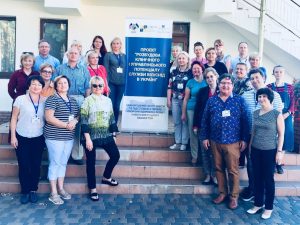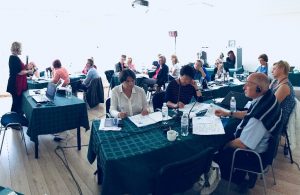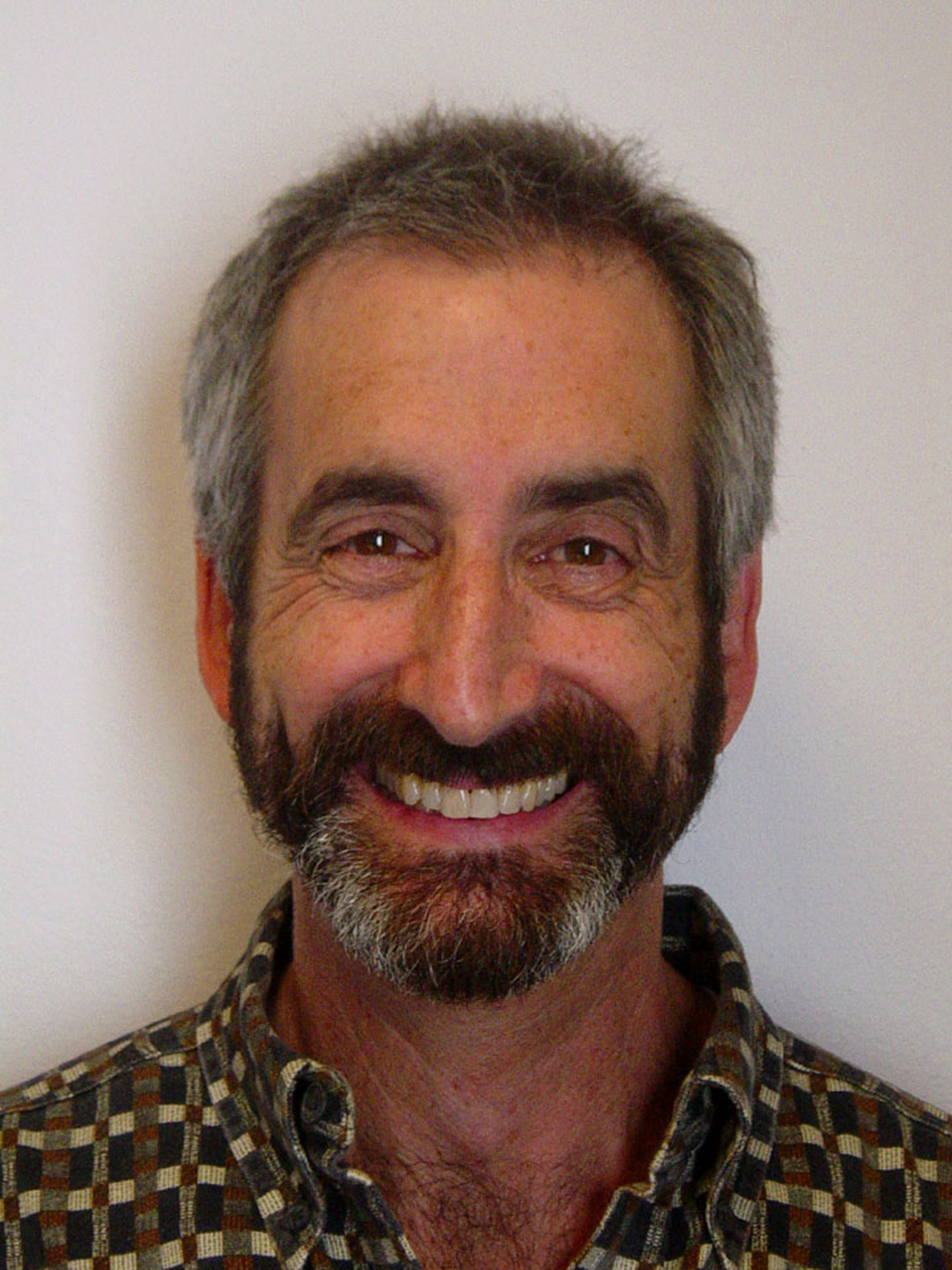I-TECH India PL has provided national, state, and facility level technical assistance for improving quality, analysis and presentation of ART program data; developed innovative tools for tracking program progress based on data analysis of selected indicators over a period of time and submitted for national scale-up; and provided technical mentoring to improve quality of data collection and reporting by the ART Centers at 48 sites of India in the last three years.
Category: Technical Areas
Building the Capacity of the Health Workforce in India
I-TECH India PL has worked with stakeholders to develop national training curricula for health care staff on delivering HIV care and treatment services. In addition, it has:
- Planned and implemented training programs for various cadres of clinical and program staff;
- Participated in medical officer training programs at the national level;
- Designed and conducted five regional continuing medical education (CME) courses in North, South, West and Northeastern regions on “Invigorating HIV Care” for ART center medical officers;
- Designed and conducted four workshops in two weeks reaching 164 ART counselors for improving care support and treatment services provided to key population clients accessing ART centre services in Maharashtra;
- Conducted National Distance Learning Seminars (webinars)—an average of 25 sessions per year on clinical- and program-related topics for the past five years reaching over 50% of ART Centers in India, with average participation of 1000 per session. These sessions are recorded and are available on YouTube channel “I-TECH India.”
- Conducted Regional Distance Learning Seminars (webinars)—an average of 60 sessions per year through 15 HIV/AIDS Centres of Excellence in more than six languages during the last five years reaching over 50 % of ART Centers in India, with average participation of 50 per session; and
- Coordinated certificate courses from UW on Leadership and Management in Health, Principles of STD (Sexually Transmitted Diseases) and HIV Research, Introduction to Epidemiology for Global Health, Clinical Management of HIV, and Fundamentals of Implementation Science for over 500 individuals during the past five years.
Strengthening Health Service Delivery in India
- I-TECH India PL has successfully designed and implemented four differentiated ART service delivery models, including models for key population clients, in collaboration with other stakeholders in states of Maharashtra, Nagaland, Manipur and Mizoram to develop a proof of concept for the national level scale up;
- Improved delivery of health services through onsite technical mentoring and supervison of health care staff in 9% of the ART centers of the country in the last three years;
- Technically assisted successful implementation of newer initiatives such as treatment of TB through the ART centers, the “Treat All” initiative, and routine viral load monitoring at 48 ART centers; and
- Conducted/participated in health service delivery assessments of facilities such as the national HIV/AIDS Centers of Excellence, ART Centers, Link ART Centers, and other care and support centers for the NACO.
I-TECH Ukraine Trains Faculty in Innovative Teaching Methods and Principles

The International Training and Education Center for Health (I-TECH) Ukraine, in partnership with the Ukrainian Family Medicine Training Center of Bogomolets National Medical University, conducted a three-day training course for clinical educators on principles and innovative methods for effective teaching. The course was held outside Kyiv from 18-20 September 2018.
Facilitating the training were Ann Downer, EdD, I-TECH Executive Director and Professor in the University of Washington Department of Global Health, and Michael Reyes, MD, MPH, I-TECH co-founder and Professor in the University of California, San Francisco Department of Family and Community Medicine.
The course focused primarily on new teaching methods and stronger instructional design for clinical courses taught by faculty, especially those with content on HIV/AIDS, Tuberculosis, and malaria. The objectives included helping clinical educators to:
- strengthen learning objectives and measurement of student learning;
- vary their use of teaching methods; and
- revise lectures to make them more interactive.

The course modeled these objectives by using small group work and other teaching methods to increase engagement.
“Over the course of three days, I was able to learn techniques and best practices to actively engage my course participants into the learning process,” says Galyna Vynogradova, Associate Professor of the Ukrainian Family Medicine Training Center and participant of the training.
This training course is a part of a larger I-TECH effort to build the clinical and managerial capacity of HIV/AIDS service providers throughout Ukraine.
Health Policy System Strengthening in South Africa
I-TECH supported the National Department of Health (NDoH) in the process of strengthening the policy management and implementation systems with a focus on reaching the 95-95-95 targets and provided ongoing technical assistance as the NDoH beta tested the policy information management system (PIMS) developed in COP 2017.
I-TECH supported the revision and finalization of a Policy Manual and coordinated with the NDoH Policy Project Steering Committee to promote engagement from NDoH staff.
Clinic Ward-Based Outreach Team (WBOT) Program in South Africa
I-TECH supported the implementation of a Community Oriented Primary Care (COPC) phased intervention to enhance ward-based Outreach Team (WBOT).
Continue reading “Clinic Ward-Based Outreach Team (WBOT) Program in South Africa”
Mental Health Integration (MhINT) Program in South Africa
In collaboration with the University of KwaZulu-Natal, and The Knowledge Translation Unit, I-TECH worked with the National Department of Health (NDoH) in South Africa to strengthen the integration of mental health services into routine chronic care within the primary health care system.
The Mental Health Integration (MhINT) program improves access to care for common mental disorders and benefits adherence and engagement in care, aligning with the UNAIDS 95-95-95 strategy. I-TECH provided technical assistant to the NDoH and district support partners (DSPs) as the MhINT Program was scaled-up in priority districts identified by the U.S. Centers for Disease Control and Prevention’s Global AIDS Program (CDC GAP), South Africa, through the President’s Emergency Plan for AIDS Relief (PEPFAR). I-TECH also supported the NDoH as it conducted an in-depth policy situation analysis to inform the development of a national policy incorporating the MhINT program.
Aaron Katz

Aaron Katz is a principal lecturer emeritus of Health Services, Global Health (adjunct), and Law (adjunct) at the University of Washington School of Public Health where he teaches several graduate level courses in health policy. He also has an adjunct appointment at the University of Queensland (Australia) School of Public Health. Aaron has held numerous academic leadership positions, including his current role as faculty coordinator of the Health Systems and Policy Concentration of the Health Services Master of Public Health (MPH) program and was founding director of the Leadership, Policy, and Management track of the Global Health MPH program. He was director of the UW Health Policy Analysis Program from 1988 until 2003 and editor-in-chief of the School’s biannual journal, Northwest Public Health, from 1999 to 2008.
Aaron received the American Public Health Association’s Award for Excellence in November 2006 and the Outstanding Teaching Award from the UW School of Public Health in 2004. At the 2011 “State of Reform” Washington Health Policy Conference, Aaron received the Health Reform Leadership Award.
Aaron has developed a deep understanding of the U.S. health care system and its strengths and weaknesses during a career that has spanned 40 years and four “bouts” with health care reform. He has worked in health policy and planning in Washington state since 1978, serving as a health planner, policy and planning consultant, lobbyist, and political adviser. Aaron has directed numerous policy analysis and policy development projects for legislative bodies, state and local public agencies, and private sector clients, including work on health system reform, public health reform, managed care, rural access, HIV/AIDS, workers compensation, long term care, medical economics, and services for people with low incomes. Since 1999, Aaron has collaborated on policy development and advocacy projects with colleagues in various countries in southern Asia, sub-Saharan Africa, Latin America, and Japan.
Aaron has served as a peer reviewer of articles for the International Journal for Equity in Health, Health Affairs, Journal of Health Care for the Poor and Underserved, Global Health Action, and the American Journal of Public Health. He has served on numerous community boards, including the Washington State Budget and Policy Center, Northwest Health Law Advocates, Washington Physicians for Social Responsibility, and Health Alliance International.
Aaron received a bachelor of science degree from the University of Wisconsin – Madison in 1974 and a certificate [master] of public health degree from the University of Toronto in 1975.
Jeff Lane

Jeff Lane, JD, MPH, is Co-Director of the University of Washington’s (UW) International Training and Education Center for Heath (I-TECH) and an Assistant Professor in the UW Department of Global Health. He is also an affiliate faculty member with the UW Global Medicines Program and the UW Implementation Science Program.
Prior to joining UW, Jeff practiced health care regulatory law in Seattle, Washington where he was a partner in the firm’s health care practice group. During his career, Jeff has worked to strengthen health policy and regulatory environments in the United States and more than a dozen countries around the world, including Botswana, Cambodia, India, Jamaica, Kenya, Mozambique, South Africa, Tanzania, Trinidad & Tobago, Uganda, and Ukraine. Jeff’s research focuses on how health policy and law impact access to essential medicines and health workers around the world.
Some of his recent projects include:
- Developing guidance for national medicine regulatory authorities on emergency use authorizations for medicines and vaccines
- Evaluating the implementation of pharmacist-initiated HIV pre-exposure prophylaxis (PrEP) laws in the United States
- Assessing the availability and affordability of medicines in the WHO Africa region
- Strengthening capacity for HIV service delivery in India, Jamaica, Mozambique, Trinidad and Tobago, and Ukraine
- Analyzing scope of practice laws affecting equitable access to cardiovascular health services in rural areas of the United States
- Strengthening advanced HIV disease services in Mozambique
Jeff teaches Policy Development and Advocacy for Global Health (GH523) every spring and co-teaches Global Health Pharmacy: Medicines, Practice, and Policy every winter (GH543). He received his Juris Doctorate and Master of Public Health from UW.
Caryl Feldacker

Caryl Feldacker, PhD, MPH, has over 20 years of international experience focused on ensuring quality public health programming and rigorous program monitoring and evaluation (M&E), including more than ten years conducting HIV-related implementation science research in sub-Saharan Africa. Dr. Feldacker is the co-principal investigator (PI) on the International Training and Education Center for Health (I-TECH) Integrated Voluntary Medical Male Circumcision (VMMC) program in Zimbabwe. Her current research focuses on digital health solutions to improve the quality of patient care while reducing provider workload and program costs. She is PI for four National Institutes for Health (NIH) studies using interactive, two-way texting (2wT) between patients and providers to improve patient retention in care, provide post-operative telehealth, and improve data quality in Malawi, Zimbabwe, and South Africa. For each initiative, she partners closely with ministries of health and local partners with the aim of helping strengthen monitoring and evaluation (M&E) and research capacity for sustained improvement. Her digital health interventions employ the open-source Community Health Toolkit in collaboration with Medic.
Her broad implementation and research experience includes exploring trends in adverse events in VMMC programs; closing HIV service delivery gaps; strengthening routine data quality for accurate and timely reporting; task-shifting of healthcare workers; understanding patterns in loss-to-follow-up within routine HIV program settings; strengthening integration of family planning into HIV-related care; and expanding electronic medical record systems to provide integrated patient care.
Her current collaborations include partnerships with Lighthouse Trust (Lilongwe, Malawi); Aurum Institute and The Centre for HIV-AIDS Prevention Studies – CHAPS (South Africa); and Zimbabwe Technical Assistance, Training and Education Centre for Health – Zim-TTECH (Harare, Zimbabwe).
Dr. Feldacker is an Associate Professor in the Department of Global Health in the School of Public Health at the University of Washington (UW). In addition to her work with I-TECH, Dr. Feldacker is affiliated with the UW Global Center for Integrated Health of Women, Adolescents, and Children (GlobalWACh) where she aims to translate 2wT-based advantages for the postpartum care context.